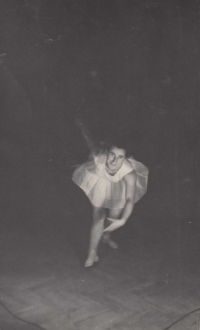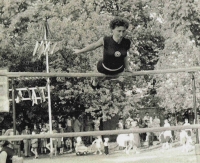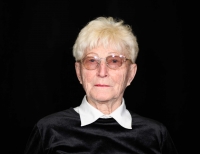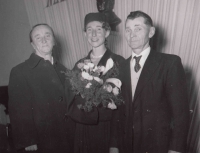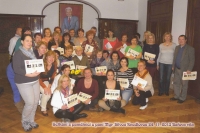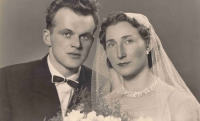Life means moving

Stáhnout obrázek
Sylva Knedlová, née Pešková, was born on January 1, 1934 in Zlín. She grew up with six siblings. Her mother was a midwife and her father an employee at the Bata factory mill. The family participated in the life of the Sokol community and maintained contacts with the Bata family. For example, Sylva was photographed on their advertising brochures. They also received children‘s shoes for trying out. During World War II, Sylva‘s father was arrested by the Gestapo for listening to foreign radio. Shortly before the February 1948 coup, her older sister Marie and her husband, who worked as an engineer for the Bata plant, went to India. Soon after, Sylvin‘s brother Oldřich tried to escape abroad with two friends. He was the only one of the three to survive, but was detained and then served his sentence in the Jáchymov uranium mines for several years. After his release he served at auxiliary technical troops as well as his brother Jan. Sylva has been doing sports since her youth. She practiced gymnastics, devoted herself to ballet and collected awards in athletics under the couching of Dana Zátopková. After graduating from elementary school and one-year course she was surprisingly admitted to nursing school. After a year of study, she moved to the Pedagogical Grammar School in Kroměříž. After graduation, she started studying distance education in secondary schools in Olomouc with a degree in physical education and Czech language. She then taught mostly in Fryšták, where she met her future husband and started a family together. During her practice as a non-party person she faced a number of problems. Together with her husband, for example, they were reduced their salary for personal remuneration, to which she was not entitled under the then rules. Her entire life was actively involved in sports, she held a number of sports positions in various organizations (head of district and region in UVČSTV and later a member of the board) and after 1989 she worked in the council. Even in retirement he continues teaches at Fryšták Elementary School.
